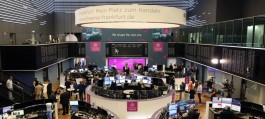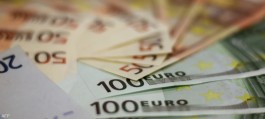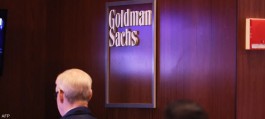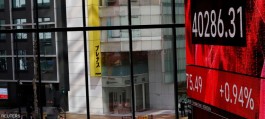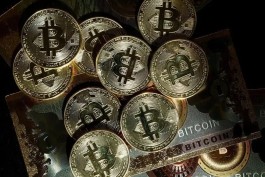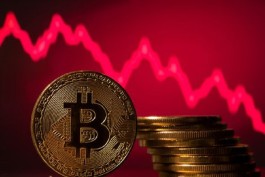US stock index futures rose in Asian trading and oil prices recovered after US President Donald Trump expressed openness to a deal with China, boosting market sentiment following the shock caused by the sharp escalation in trade tensions.
S&P 500 futures rose 1.3%, while Nasdaq 100 futures jumped 1.8%, after the US administration softened its escalatory tone following Trump's threat to impose 100% tariffs on China in retaliation for Beijing's export restrictions.
US 10-year Treasury futures also opened higher, and oil prices rose 1.7%. Meanwhile, silver prices hovered near a record high amid an unprecedented short squeeze in London and trade tensions, while gold hit a new high, and cryptocurrencies recovered.
Cautious optimism after sharp escalation in trade tensions
Declines in Asian stocks, which were closed when Trump made his remarks on Friday, highlighted continued concerns about the sustainability of the truce. Benchmark indices in China and Hong Kong opened down more than 2% before later paring losses. Japan was closed for a holiday, with no actual trading in US bonds.
Risk assets have recently experienced rare sharp downward movements, which may explain the strong reaction to trade tensions. Since the tariff-triggered collapse in April, the S&P 500 has surged, fueled by optimism about artificial intelligence and expectations of a Federal Reserve rate cut. It currently trades at one of its highest valuation levels in 25 years, leaving a narrow margin of safety against negative news.
“This doesn’t look like a repeat of April, but more like a preliminary negotiation phase that’s going back and forth before the November deadline for a US-China truce,” said Anna Wu, a multi-asset strategist at VanEck Associates Corp., adding that markets are pricing in a degree of overselling on Friday.
Signs of negotiating flexibility
After China announced sweeping export restrictions last week on products containing even traces of some rare earth minerals, Trump responded by threatening to cancel a scheduled face-to-face meeting with President Xi Jinping, their first in six years.
Trump said he would impose additional 100% tariffs on China, in addition to restrictions on the export of any and all critical software, starting November 1.
China responded by saying the United States should stop threatening higher tariffs, calling for further negotiations to resolve outstanding disputes, and stressing that it would not hesitate to respond if Washington proceeded with its measures against Beijing.
In contrast, the Trump administration expressed openness to reaching an agreement on Sunday, with the US president hinting at a possible way out for his Chinese counterpart, while issuing a veiled threat that a comprehensive trade war would harm China.
This demonstrates that Washington seeks to maintain pressure on Beijing to reverse its recent trade actions, while reassuring markets that a mutual escalation is not inevitable.
Markets are currently debating whether the latest round of tariffs will actually happen, Delaney Wu, an analyst at Pepperstone Group, wrote in a note. If it's just a negotiating maneuver, the current declines could be a buying opportunity on the dip, but if the tariffs are actually implemented, we could see a new wave of volatility and a global re-pricing of risk.
Currency movements and political unrest in Japan
In currency markets, the risk-linked Australian dollar rose after Trump softened his rhetoric on the trade dispute with China, while the Japanese yen weakened on Monday after the collapse of Japan's ruling coalition, a major blow to the new ruling party leader, Sanae Takaichi.
This reminds us that the Australian dollar, with its high sensitivity to risk, is often the first to be affected when things go wrong, said Rodrigo Catril, an analyst at National Australia Bank, adding that the Australian dollar's movements against the yen were amplified by political uncertainty in Japan.
On the European front, French President Emmanuel Macron announced a new government on Sunday, amid mounting pressure on him and his reappointed Prime Minister Sébastien Lecornu to avert a worsening political crisis and pass the budget. French bond futures opened lower.
















